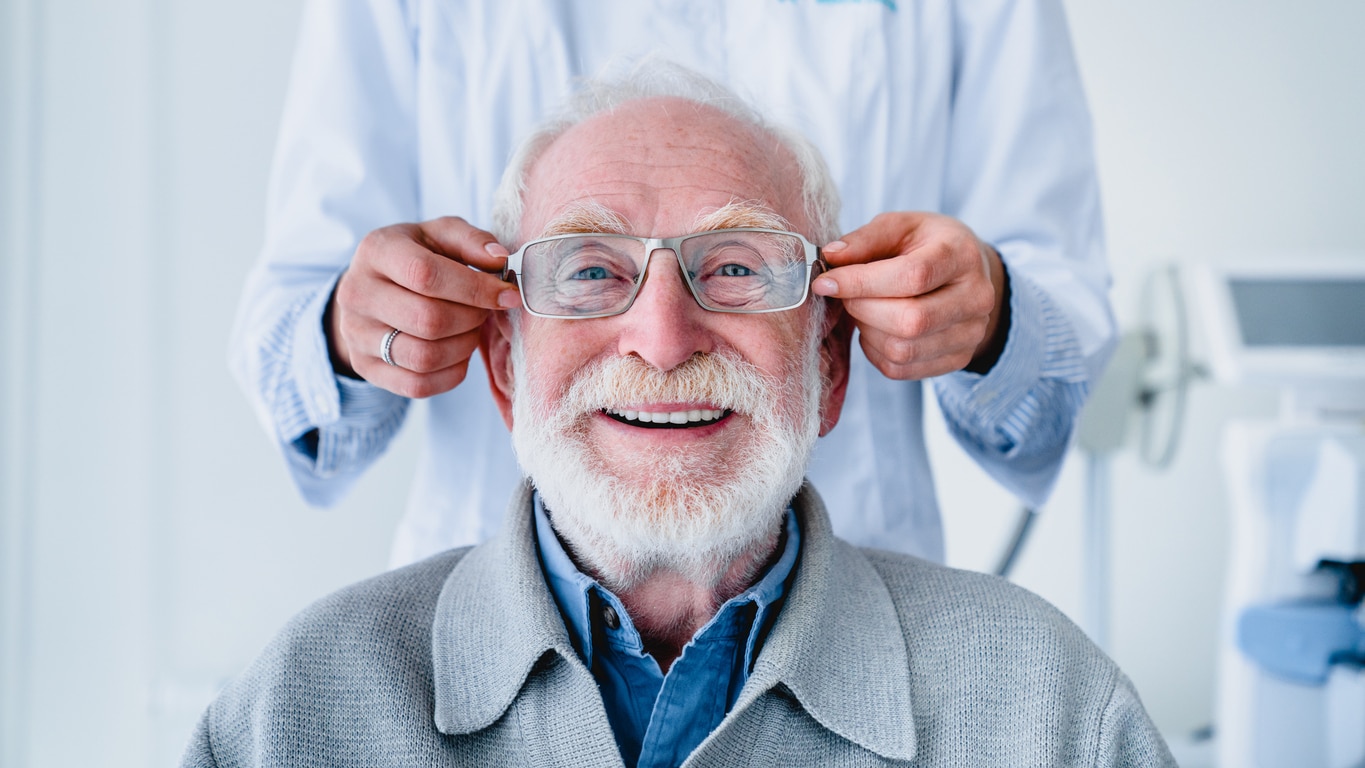As we age, it’s essential to stay on top of physical changes to remain independent. That’s where vision and hearing screenings come in. While getting exercise and eating right are key to overall health, two areas — sight and hearing — can be overlooked, leading to long-term problems. That’s why experts recommend seniors take the time to be screened regularly to catch changes in the earliest stages and treat them before they become life-changing.
Vision Health
Aging brings changes to eyesight that occur so slowly that seniors may not notice them in the early stages. For example, the condition known as “presbyopia” is a gradual loss of the ability to clearly see things up close. The cause is the natural hardening of the lens, which inhibits the eye’s ability to change shape and focus on details up close. For most people, this change is easily accommodated by reading glasses, contacts, medication, or, in some cases, surgery.
Another slow vision change affecting seniors is cataracts. According to the mayoclinic.org article, “Cataracts,” they occur over time as a cloud over the lens, which makes everything blurry and may affect night vision, cause double vision, and increase sensitivity to light and glare. While there is no known way to prevent cataracts, regular eye exams can help spot them early so they can be surgically removed.
Glaucoma is another age-related eye condition, but one that can cause permanent damage and ultimately blindness. As noted in the aao.org article, “Understanding Glaucoma: Symptoms, Causes, Diagnosis, Treatment,” there are several types of glaucoma, but the main cause is unstable eye pressure (or intraocular pressure) caused by improper drainage of the fluid called the “aqueous humor.”
Early symptoms of glaucoma may include:
- Forehead or eye pain.
- Eye redness.
- Blurry vision.
- Seeing rainbows or halos.
- Nausea/vomiting.
Above normal risk factors for glaucoma include:
- High eye pressure.
- Far- or nearsightedness.
- Long-term use of steroids.
- Thinning cornea or optic nerves.
- High blood pressure, poor circulation, diabetes, or migraines.
- Family history.
- Eye injury.
The best way to catch glaucoma early is through an eye exam, which should include not only measuring eye pressure but also drainage angle, peripheral vision, cornea thickness, and optic nerve. The earlier glaucoma is diagnosed, the higher the likelihood of preventing blindness with medications or surgery.
Hearing Health
While many older adults expect some level of hearing loss, or “presbycusis,” according to the clevelandclinic.org article, “Presbycusis (Age-Related Hearing Loss),” aging is the most common cause of hearing loss and affects 2 out of every 3 seniors aged 70 and older. In addition, poor hearing can also affect other aspects of health. One of the most frightening is the connection between hearing loss and cognitive decline. As described in the hopkinsmedicine.org article, “How Does Hearing Loss Link to Cognitive Decline?,” research by otolaryngologists at the Johns Hopkins Cochlear Center for Hearing and Public Health found that almost 80% of Alzheimer’s disease patients also had hearing loss, and that number climbed to 94% for patients over age 85.
Hearing loss can also make a senior seem confused or unresponsive simply because they don’t hear a question or statement. This can cause a loved one to become withdrawn and isolated, which also has negative health consequences. While some hearing loss is normal, it can also result from health conditions like diabetes and high blood pressure, as well as ear infections, stroke, cancer, heart disease, and even some medications like those described in the aarp.org article, “8 Medications That Can Harm Your Hearing.”
When hearing loss becomes a concern, a medical assessment can help determine if the problem is something as simple as too much earwax or a medication problem, is the result of an illness or injury, and if a hearing aid would help. Not only are different types and styles of hearing aids available, but a full range of other technologies can help alert the hard-of-hearing when the phone or doorbell rings. For a look at some of the options, check out the hearingloss.org article, “Hearing Assistive Technology.”
When typical hearing aids don’t work, some seniors may benefit from a cochlear implant. According to the mayoclinic.org article, “Cochlear implants,” for those with severe hearing loss from inner-ear damage, but who have a functioning cochlear nerve, a cochlear implant offers the chance to hear again, although it can take several months to get used to how it works, which is different from normal hearing.
At Ganton’s Countryside, we put health and wellness first and encourage our residents to keep regular healthcare appointments. For more information about Countryside, please call Margaret Nagel at (517) 206-5000 or download our brochure to learn about our care levels, cost, and amenities.


